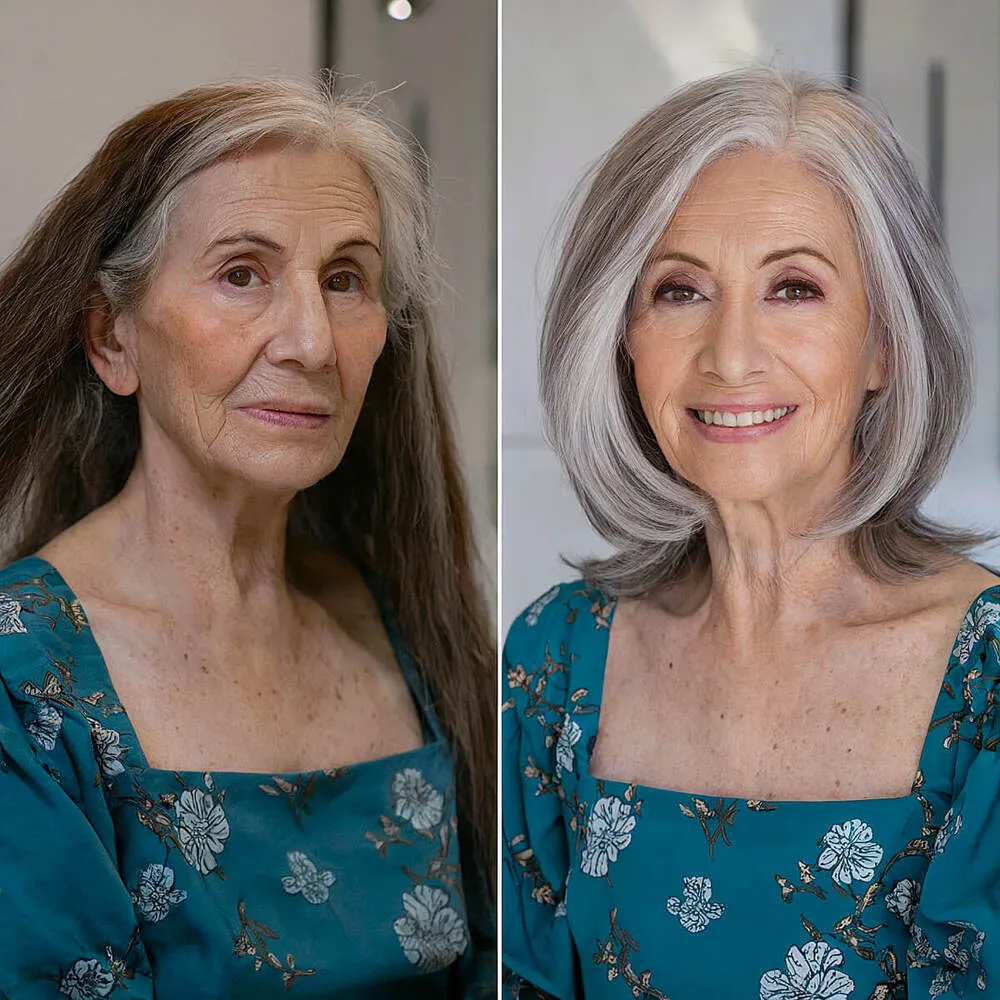Fifteen years ago, on a cold winter’s evening in New York City, I showed up for my first yoga class ever, dressed in stiff jeans, cowboy boots, and a boiled-wool turtleneck. I’d made it to class on the recommendation of a friend who was concerned about my chronic back pain. But she had not mentioned, and it had not occurred to me, that I should wear something more athletic to class. Honestly, I had no idea that I would be expected to perform anything physical during the practice of yoga. Forgive my ignorance, but I’d somehow expected, I dunno, a lecture? Handouts and a syllabus? Anyhow, whatever was coming to me that evening, I knew I would need energy to get through it, so I stopped at a pizza joint right before class for a chicken calzone and Diet Coke.
Vai man šeit jāsaka, ka šajos gados es biju tikai atvienots no sava ķermeņa? Varbūt labāks veids, kā pateikt, ir tas, ka līdz šim dzīves brīdim es izturējos pret savu ķermeni kā ar īres automašīnu - tikai aizdevumu, sitēju, citronu, kas pastāvēja bez iemesla, izņemot to, lai pārvestu manu galvu no vietas uz vietu, lai es varētu redzēt lietas, uztraukties par lietām, domāt par lietām un atrisināt lietas. Un mans ķermenis šo darbu paveica, kaut arī es nekad par šo lietu nekad nerūpēju. Vai vismaz mans ķermenis parasti šo darbu paveica - līdz manas hroniskās muguras sāpes kļūs tik sliktas, ka tas neļāva man gulēt, un pat no došanās uz darbu, kad muskuļi ap manu mugurkaulu atradās tik dziļā spazmā, ka es nevarēju sevi pacelt no paklāja.
Bet tas notiktu tikai dažas reizes gadā! Un šāda veida lieta bija pilnīgi normāla! Vai vismaz tas bija normāli manā ģimenē. Es atceros, ka uzstājos vidusskolas mūziklos un lauka hokeja spēlēs ar sāpīgu muguru. Es esmu gaidījis galdus un braucamus zirgus un iemīlējusies un dejoju kāzās, bet vienmēr ar sāpīgu muguru. Mums visiem Gilberts ir sliktas muguras. Man tas nenotika, ka man kādreiz nevarēja sāpēt muguru. Bet draugs, uztraucoties par pieaugošajām manu muguras sāpju epizodēm, bija ieteicis jogu un, kas pie velna - bez domām, es gāju.
Es diezgan daudz varēju uzreiz pateikt, ieejot studijā, ka šī jogas sīkumi man nebija paredzēti. Pirmkārt, tur bija tā svinīgā vīraka smarža, kas šķita pārmērīgi nopietna un sava veida smieklīga kādam, kurš bija daudz vairāk pieradis pie cigarešu un alus smakām. Tad bija mūzika. (Daudzinot, debesis mums palīdz!) Klases priekšpusē bija kaut kas tāds, kas patiesībā šķita svētnīca un acīmredzami nebija domāts par joku. Un skolotāja - nopietna, novecojoša hipija viņas nopietnajā, novecojošajā trikotāžas laikā - sāka domāt par to, kā OM skaņa bija Visuma pirmatnējais iemesls utt.
Frankly, it was all a little too much for me to take. I was, after all, a young woman who never left her apartment without strapping on a tight, protective vest of sarcasm. And speaking of tight, my wool turtleneck had been a serious sartorial misjudgment, because the room was sweltering. Also, my jeans cut into my belly every time I bent over to reach for my toes—and the teacher made us bend over and reach for our toes again and again, which seemed a little pushy for a first class, to be honest. Worst of all, that calzone I’d just eaten kept threatening to make a reappearance. Indeed, for most of the class, I felt rather like a calzone myself—stuffed and baked and surrounded by something very, very flaky.
And yet. And yet, about an hour into the class, as the sweat was running fiercely into my eyes (eyes that I had been rolling in sardonic detachment the whole time), there came this moment. The teacher had us do this thing—this strange, twisting, lying-down thing. She put us flat on our backs, had us pull our knees up toward our chests, and then invited us to slowly (and I’m quite certain she used the word lovingly) tip our knees to the right, at the same time that we stretched our arms wide and turned our heads to the left.
Nu. Šīs bija ziņas. Faktiski tā bija atklāsme - un es to uzreiz zināju. Es bez šaubām zināju, ka mans mugurkauls nekad agrāk nav padarījis šo vienkāršo, bet precīzo formu - tas ir vērsts, šis sasniedzams, šis dziļais pagarinājums. Kaut kas mainījās. Kaut kas pacēla. Un pat manos šauros džinsos, pat manā niezošajā džemperī, pat manā necaurlaidīgajā sarkastiskajā vestē - kaut kur dziļi zem tā - mans mugurkauls sāka ar mani runāt, gandrīz raudājot man. Mana mugurkauls teica kaut ko līdzīgu, ak, mans Dievs, ak, mana mīļā mīļā debesu žēlsirdība - lūdzu, neapstājies, jo tas ir tas, kas man vienmēr ir vajadzīgs, un tas ir tas, kas man katru dienu būs vajadzīgs visu atlikušo dzīvi, beidzot, beidzot, beidzot, beidzot ...
Tad tas dumjš vecais hipijs viņas dumjajā vecajā trikšā nāca pāri un maigi uzspieda vienu roku uz gūžas un otru uz pleca, lai atvērtu šo sagriešanu tikai nedaudz vairāk… un es plīstu asarās.
Lūdzu, saprotiet - es nedomāju tikai to, ka es mazliet sālīju vai dažus šņaukāju; Es domāju, ka es sāku raudāt, dzirdami. Kad es gulēju tur, raudot un vērpjot atvērtu, pilnu ilgstošu, pilnu lūgšanu, ar šaubām pilnu, ar vēlmi būt labākam cilvēkam, kas ir pilns ar uzdrīkstēšanos kļūt par pirmo cilvēku manas ģimenes vēsturē, kura mugura katru dienu nesāpēs, kas ir pilna ar pēkšņu un šokējošu realizāciju, ka es kaut ko tādu, kas ir, ir, ka es to nācu, bet es to nācu, bet es to nācu, bet es to nācu. piepildīja manas plaušas un sirdi ar nelielu kaut ko jogas biznesa ļaužu zvanu Šakti.
Šis jogas sīkums nebija tikai iespējamais risinājums muguras sāpēm mūža garumā, bet arī atklāsme. Mājas atnākšana. Izjuta sajūta, ka tā ir viena ar enerģētisko Visuma pakārtoto straumi. Wow!
Es kaut kā mīkstas sajauktas mājas, drūmā.
I need more of this, I kept saying to myself. I need much, much more of this. So, in the 15 years since that night, I have given myself more of it. Much, much more. I’ve given myself years of yoga, in fact; I’ve practiced all over the world, wherever I happen to be at the moment—from Mumbai to Nashville to Santiago and everywhere in between. I have stuck with this discipline in a way that I have never stuck with any other hobby, which only shows that yoga is not a hobby for me but a haven. For me, finding a good yoga class in an unfamiliar city feels the way it probably felt for the old-timey Catholics when they stumbled unexpectedly on a Latin mass being celebrated in some foreign capital: At the first familiar syllables of the ritual, they were back home.
And you know what? It doesn’t even have to be a good yoga class. Garrison Keillor once said that the worst pumpkin pie he ever ate wasn’t that much different from the best pumpkin pie he ever ate, and I feel exactly that way about yoga classes—that even the sloppiest or most rudimentary studios have provided me with the opportunity for transformation. Mind you, I have experienced some truly transcendent teachers, but I have also, I’m afraid, experienced some real dingbats (including one woman who kept urging our class, Push it! Look at your neighbor and try to do what she’s doing!). Either way, it doesn’t matter that much. Once I had learned the basics of my own yoga—once I had discovered the limitations and needs of my body—I knew that I could always reach my own point of perfect practice within somebody else’s instructional guidance, no matter how flawed they (or I) might be.
Over the past decade and a half of practice, I have come again and again to yoga classes tired and burdened and lacking, but something always happens, almost despite my weakness or my resistance. You are not what you believed you were, I told myself that night as I walked home from my first class in my tight jeans and sweaty sweater—and I have learned and relearned that lesson routinely, for years now. There always comes that one holy moment, usually somewhere in the middle of the class, when I suddenly find that I have shed my pain and failings, that I have shed my heavy human mind, and that I have metamorphosed for just an instant into something else: an eagle, a cat, a crane, a dolphin, a child.
Un tad es atkal dodos mājās savā ādā, lai dzīvotu vēl vienu dūrienu un mēģinātu to darīt labāk. Un lietas ir labākas, tik daudz labākas. Un, starp citu, neiespējamā veste ir pazudusi uz visiem laikiem. Un nē, mana mugura vairs nesāp.
Elizabete Gilberta ir autore Ēd, lūdzies, mīli Apvidū Viņas jaunā grāmata, Apņēmīgs: skeptiķis mieru ar laulību , nesen publicēja Viking-Penguin.














